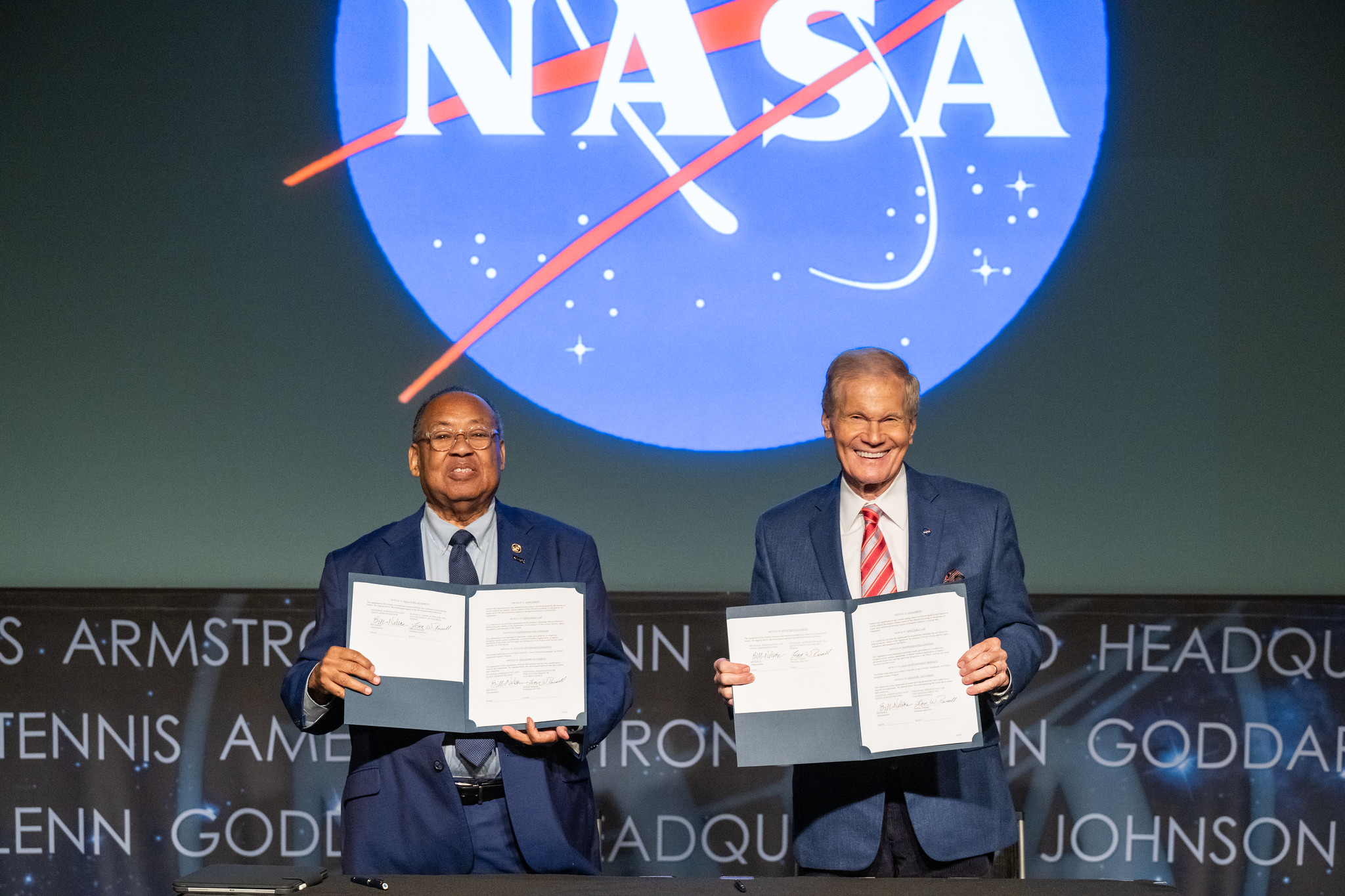3 min read

During an event Thursday, NASA and the National Association for the Advancement of Colored People (NAACP) signed a Space Act Agreement to increase engagement and equity for underrepresented students pursuing science, technology, engineering, and mathematics (STEM) fields and to improve access to agency activities and opportunities.
"NASA and the NAACP share a longstanding commitment to attracting more diverse students to STEM education and ultimately careers," said Shahra Lambert, senior advisor for engagement and equity, NASA headquarters. "This agreement reaffirms that commitment and solidifies a partnership that will enable us to expand opportunities for more students of color to build their STEM identity and gain real-world experience through NASA STEM education, mentorship, and career awareness. With the NAACP's help we'll be able to truly impact young minds who will be our future scientists, engineers, explorers and more."
As part of the agreement, the NAACP will incorporate NASA STEM lessons, content, and themes into its Afro-Academic, Cultural, Technological and Scientific Olympics (ACT-SO) achievement program, which is a series of competitions where students compete for scholarships and other incentives in areas ranging from performing and culinary arts to business and STEM. In turn, NASA will provide guidance on programming, participate in information sharing, provide mentorship, and facilitate tours of NASA facilities when appropriate.
"Much like NASA, brave, brilliant, Black women were critical to the success of the NAACP," said Leon W. Russell, Chairman of the NAACP Board of Directors. "For years, we've worked to increase the number of diverse STEM students by providing scholarships and establishing key initiatives. Through our ACT-SO program and this new partnership with NASA, both organizations will make even greater progress to help pave the way for more Katherine Johnsons and Mary Jacksons. By enacting today's agreement, we hope to increase the number of Black and underrepresented students in the STEM fields and help them reach for the stars."






